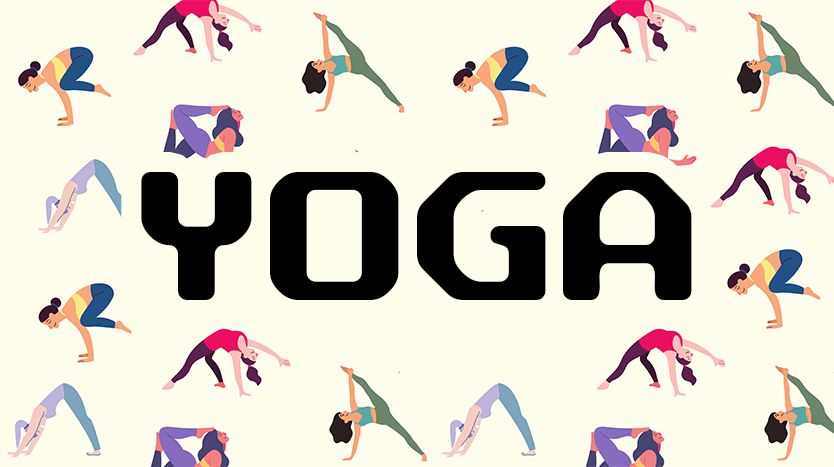
Welcome to the Positive Pulse blog! Check in with us each month for tips on healthy living, right on our website. A short snippet will be featured in the NJSAP monthly newsletter as well, which you can sign up for here.
We're back this month with some more tips on healthy living; this time our focus is utilizing the benefits of yoga and to inspire a healthy lifestyle.
Yoga is a group of physical, mental, and spiritual practices or disciplines which originated in ancient India but has become a very popular way to exercise and stay healthy in the modern era. The word yoga, from the Sanskrit word yuj, means to yoke or bind, and is often interpreted as "union" or a method of discipline. The Indian sage Patanjali is believed to have collated the practice of yoga into the Yoga Sutra an estimated 2,000 years ago. The Sutra is a collection of 195 statements that serves as a philosophical guidebook for most of the yoga that is practiced today. Today, most people practicing yoga engage in a program of physical poses designed to purify the body and provide the physical strength and stamina required for long periods of meditation.
Yoga is amazing—even if you only practice for one hour a week, you will experience the benefits of the practice. All you really need to begin practicing yoga is your body, your mind, and a bit of curiosity. It is also helpful to have a pair of yoga leggings, or shorts, and a t-shirt that's not too baggy. No special footgear is required because you will be barefoot. It's nice to bring a towel with you. You might want to buy your own yoga mat, but if you go to a class most studios will have mats and other props available for you.
There are many amazing health benefits to practicing yoga. Yoga develops inner awareness, focusing your attention on your body's abilities at the present moment. Surveys have found that those who practiced yoga were more aware of their bodies than people who didn't practice yoga. They were also more satisfied with and less critical of their bodies. Practicing yoga has been shown to increase mindfulness not just during yoga, but in other areas of a person's life. People who practice yoga and are mindful eaters are more in tune with their bodies. They may be more sensitive to hunger cues and feelings of fullness.
Additionally, researchers studied a small group of sedentary individuals who had not practiced yoga before. After eight weeks of practicing yoga at least twice a week for a total of 180 minutes, participants had greater muscle strength and endurance, flexibility and cardio-respiratory fitness. It also lowered excessive blood sugar levels in people with non-insulin dependent diabetes and reduced their need for medications. Yoga is now being included in many cardiac rehabilitation programs due to its cardiovascular and stress-relieving benefits.
There are an incredible amount of yoga poses available, including adaptive poses for people of all abilities. Try checking out our Training Tuesdays, Yoga Classes with Peaceful Potato during HLP: Live, or our YouTube trainings to start practicing your yoga poses!
RESOURCES:
https://www.yogajournal.com/meditation/yoga-questions-answered
https://www.health.harvard.edu/staying-healthy/yoga-benefits-beyond-the-mat

